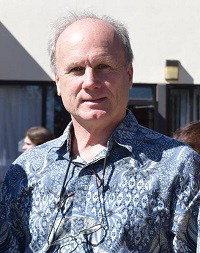Jack Putz is a Distinguished Professor of Biology and Forestry at the University of Florida where he has been a faculty member since 1982. He also holds an honorary professorship at Utrecht University in the Netherlands. He received his undergraduate education at the University of Wisconsin, served as a Peace Corps Volunteer at the Forest Research Institute Malaysia, has a PhD from Cornell University, was a NATO Post-Doctoral Fellow at the Tropical Forestry Institute at Oxford University, and was a Bullard Fellow at Harvard University. His research focuses on the ecological basis of environmentally sound and economically viable tropical forest management, but he also studies issues related to savanna ecology and restoration, non-timber forest products, and ethnobotany. Much of his work is based on market-based incentives for improved management; he started working on forest certification in the 1980s and ran a forest-based carbon offset project in Malaysia in the 1990s. Dr. Putz’ current research on landscape-level land-use planning for conservation and development is based mostly in Indonesia and Mexico, but he is also involved in projects in Guyana and Malaysia. Since receiving his undergraduate degree in education in 1973, he has actively promoted science-based approaches to pedagogy both at his university and with the institutions and individuals with whom he works around the world. Along the way he’s published more than 300 research articles, essays, and reviews, and also popular magazine and newspaper articles on natural history and nature conservation issues. USAID Profile
Asia Bureau
Francis E. "Jack" Putz, a Distinguished Professor of Biology and Forestry at the University of Florida, is spending his Jefferson Fellow year with USAID’s Asia Bureau. With his focus on forests and forestry in Indonesia and elsewhere in Asia, he hopes to reveal why improved forest management practices are seldom spontaneously adopted by concession holders. Based on his four decades of research in the region, he is pursuing both economic and biophysical constraints on sustainable forest management. To help him achieve his goals, he will spend a substantial portion of his fellowship year in the field in Indonesia.
|




